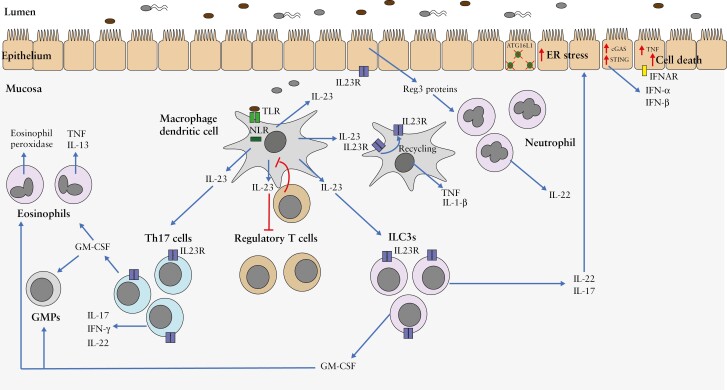Figure 3.
IL-23 promotes intestinal inflammation through pleiotropic effects on innate and adaptive immune cells.
Figure depicts the diverse downstream immunological effects of IL-23 produced by macrophages and dendritic cells in response to microbial stimulation. IL-23 enhances the induction and survival of Th17 cells, releasing the IL-17, IFNγ, IL-22 and GM-CSF cytokines, the last of these promoting accumulation of granulocyte-monocyte progenitor cells [GMPs] and activated eosinophils in the intestine. IL-23 inhibits the induction of regulatory T cells, and orchestrates the production of cytokines such as IL-17, IL-22 and GM-CSF from group 3 innate lymphoid cells [ILC3s]. Autocrine effects of IL-23 on macrophages including pro-inflammatory cytokine production and IL-23R recycling have also been reported. IL-23 additionally induces the production of neutrophil chemoattractant Reg proteins by intestinal epithelial cells, in turn serving as an additional source of IL-22. IL-22 exerts dichotomous effects in intestinal inflammation, including induction of ER stress in the intestinal epithelium and promotion of excessive activation of the cGAS-STING pathway in the absence of ATG16L1, leading to type I interferon production and cell death.

